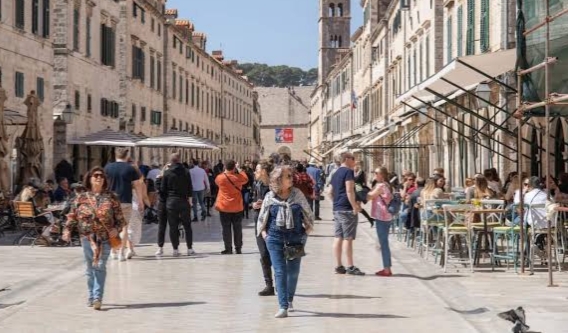INTERNEWSTIMES.COM – Businesses in Southeast England reliant on international tourism are expressing alarm over the UK government’s plan to “digitise the UK border” through the Electronic Travel Authorisation (ETA) scheme, fearing it could lead to job losses.

The ETA scheme, which will soon apply to visitors from Europe, requires a fee and a biometric passport. This has raised concerns among businesses, particularly in Kent, which has already seen a decline in tourism since Brexit.
Hilderstone College in Broadstairs, a language school, has witnessed a drop in EU student enrollment since the requirement for passports was introduced. Principal Lee Shutler believes the ETA scheme, set to be implemented for Europeans in April 2025, will further deter visitors. German students at the school confirmed that many of their peers lack passports, as travel within Europe typically only requires an identity card.
The Taylor Travel Ltd coach company in Margate has also suffered significant losses in recent years, citing factors such as fewer foreign students and the passport requirement as contributing to their struggles. Owner and director Annette Taylor emphasized the need for a major rethink of the ETA scheme, warning that further job losses are likely without changes.
Visit Kent, a tourism organization, echoed these concerns, highlighting that inbound students and leisure visitors are “our biggest market”. Chief executive Deirdre Wells described the ETA scheme as “another barrier” and called for increased support for businesses impacted by these changes.
The Home Office, however, maintains that the ETA scheme is crucial for “digitising the UK border, enhancing security and improving the experience for travellers”. They argue that the digitisation process will streamline border crossings for millions of visitors while preventing the entry of potential threats.
While the government emphasizes security benefits, businesses in the Southeast are grappling with the potential economic consequences of the ETA scheme, raising questions about the balance between security and the future of tourism in the region. (Red)























